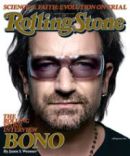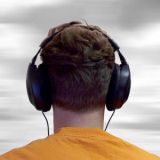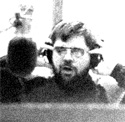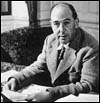
- 2025
- March 2025
- February 2025
- January 2025
- 2024
- December 2024
- November 2024
- October 2024
- September 2024
- August 2024
- July 2024
- June 2024
- May 2024
- April 2024
- March 2024
- February 2024
- 2023
- December 2023
- November 2023
- October 2023
- January 2023
- 2022
- September 2022
- 2021
- November 2021
- May 2021
- 2020
- August 2020
- July 2020
- June 2020
- April 2020
- 2019
- June 2019
- January 2019
- 2018
- July 2018
- May 2018
- March 2018
- February 2018
- January 2018
- 2017
- December 2017
- November 2017
- October 2017
- September 2017
- June 2017
- May 2017
- April 2017
- March 2017
- January 2017
- 2016
- December 2016
- September 2016
- May 2016
- April 2016
- March 2016
- February 2016
- January 2016
- 2015
- December 2015
- November 2015
- October 2015
- August 2015
- June 2015
- May 2015
- April 2015
- March 2015
- February 2015
- January 2015
- 2014
- December 2014
- November 2014
- September 2014
- July 2014
- June 2014
- May 2014
- April 2014
- March 2014
- February 2014
- January 2014
- 2013
- December 2013
- November 2013
- October 2013
- September 2013
- August 2013
- July 2013
- May 2013
- April 2013
- March 2013
- February 2013
- January 2013
- 2012
- December 2012
- November 2012
- October 2012
- September 2012
- August 2012
- July 2012
- May 2012
- April 2012
- March 2012
- February 2012
- January 2012
- 2011
- December 2011
- November 2011
- October 2011
- September 2011
- August 2011
- July 2011
- June 2011
- May 2011
- April 2011
- March 2011
- February 2011
- January 2011
- 2010
- December 2010
- November 2010
- August 2010
- July 2010
- June 2010
- May 2010
- April 2010
- March 2010
- February 2010
- 2009
- December 2009
- November 2009
- September 2009
- August 2009
- July 2009
- June 2009
- May 2009
- April 2009
- March 2009
- February 2009
- January 2009
- 2008
- December 2008
- October 2008
- July 2008
- June 2008
- May 2008
- April 2008
- February 2008
- January 2008
- 2007
- December 2007
- November 2007
- October 2007
- September 2007
- July 2007
- June 2007
- April 2007
- March 2007
- February 2007
- January 2007
- 2006
- December 2006
- November 2006
- October 2006
- September 2006
- August 2006
- July 2006
- June 2006
- May 2006
- April 2006
- March 2006
- February 2006
- January 2006
- 2005
- December 2005
- November 2005
- October 2005
- September 2005
- August 2005
- July 2005
- June 2005
- May 2005
- April 2005
- 2004
- October 2004
- September 2004
December 5, 2005
In Today’s Audio Learning News…
A few quick newsworthy audio learning-related items to pass along:
AmigoFish Launches – Dave Slusher has launched AmigoFish, a new service to help you find podcasts you’ll like based on your ratings of podcasts you’ve already listened to. It’s about time something like this came out. I’m very surprised that Slusher beat Yahoo, Odeo, Podcast Alley and others to the punch on this. I hope he does well with it. It’s definitely a much-needed service that becomes increasingly valuable as more people use it.
New Audible Re-Design – Audible.com has unveiled a fairly significant site re-design. I don’t what to make of the new look. I think I liked their old site better. It was more inviting. And adding to “Beta” moniker to their logo is just a bit too trendy. If you have a brand new service you’re launching telling everyone it’s still in Beta is kinda cool but I’m not sure you need to do this just because you’ve redesigned your site…
Bookchips to Be Available in Airports – Audiofy announced a deal with Airport Wireless Rental to make their Audiobook Chips available in airport stores. This makes a lot of sense as it’s a great way to business travels and others to grab portable audio to listen to while in the air. I think they’ll do real well with this.
Zaadz Daily Wisdom Podcast Launches – OK, one internal item of news. 🙂 Today we started sending out the Zaadz Daily Wisdom Podcast, a daily podcast of inspirational quotes and teaches. Check it out when you get a chance. We think you’ll dig it. To subscribe go to https://www.learnoutloud.com/wisdom or search the iTunes directory for “zaadz”.
OK, that’s the news and I am outta here!
November 27, 2005
IT Conversations
![]()
I’ve been a big fan of IT Conversations ever since I started listening. I simply don’t think that there is anyone else out there producing audio content as consistently solid as what Doug Kaye and his legion of volunteers are doing. And what started out as a lot of conversations about technology has evolved into so much more. Here’s a recent sampling of episodes I enjoyed listening to:
Tim Zak’s interview with Ethan Zuckerman on the subject of Africa and social entrepreneurship from the Globeshakers Podcast
Moira Gunn’s interview with Dr. Andrew Weil on the subject of aging and longevity from the Tech Nation Podcast
John Battelle’s conversation with Vinod Khosla from the Web 2.0 Conference
This is just a sampling of some of the amazing stuff that’s out there. We’ve re-done our listing of the IT Conversations podcasts and added a simple re-direct for you to be able to find them:
https://www.learnoutloud.com/itconversations
You can find all of these programs at ITConversations.com as well. This is just our way of trying to give this wealth of amazing audio content some more exposure. Also, we’ve added in links for one-click subscriptions through iTunes and to product pages on Odeo and Yahoo! Podcasts to make it even easier for you.
Please don’t forget to support IT Conversations as it is a listener-supported non-profit. Here’s a link to go to if you would like to donate. Finally, check out Doug’s Conversations Network. I know I’m beginning to sound like a broken record about this but I really feel that what he will be doing with this will change the world.
November 18, 2005
Bono Out Loud

I’ve been a huge fan of U2 since I was back in middle school and it’s been fun to see them grow and evolve over the years. What makes the band special for me is the message behind the music, a message of hope mixed with an urgent call for social activism. I’ve gotten a chance to see them in concert a few times this year and it’s an amazing experience. Really tough to put into words for those who haven’t been to a show.
Anyway, Rolling Stone just published an interview with Bono as a podcast. As far as I know this is one of the first times they’ve done something like this. Very, very cool. We’ve put this up on our site and here’s the link:
Bono: The Rolling Stone Interview Podcast
I cruised around a bit tonight to see what other Bono audio material I could find and found another great interview that was posted as part of the Back Story Podcast from the San Francisco Chronicle. It’s in three parts and you can access it from the following link:
Chronicle Podcasts: Back Story Podcast
I also came across an interview with Bono that we already had up on the site. Haven’t listened to it yet but I’ll definitely check it out soon:
Last but not least I’ll have to throw in a couple of links to U2 podcasts. Haven’t listened to these yet but if you’re a big nut like I am you may want to check them out:
The @U2 Podcast
U2Source.com – U2Chatcast
Quick reminder: If you haven’t join the One Campaign yet please do so. If we all do our part our generation can be the one that makes history by making poverty history.
Have a great weekend everyone!!!
November 18, 2005
How to “Rent” Audio CD’s from Amazon.com for under $10
I just caught this post from “Robert”, a prolific poster over on iLounge.com. Do note Robert’s disclaimer that in order for this to be legal you need to completely erase the digital file before you sell the used CDs. As long as you do this then you are completely legitimate.
How to “Rent” Audio CD’s from Amazon.com for under $10
A little bit of a pain but not a bad way to inexpensively listen to audio books. Of course, we would appreciate your business so feel free to buy your new CDs from us and then go to Amazon to sell them. 🙂
November 16, 2005
How to Become an Audio Learning Junkie, Part One

A bunch of people have asked for it so I think it’s time I finally produced. It’s time to write the definitive guide to audio learning. The thought of sitting down in front of Microsoft Word and cranking it out bored me so instead I’m going to blog about it in a bunch of installments and then once it’s done we’ll wrap it, put a bow on it and post it in the articles section of our site.
Why Audio Learning?
Let’s start with the most basic and most important question: Why should you learn on audio? For me the answer is pretty easy. I truly feel that how you spend your “dead time” is one of the most important factors in becoming successful and achieving your goals. Sure, you can listen to boring talk radio on your drive to work or pop in that CD you’ve heard 100 times before. But the minute you start to view drive time as learning time everything changes.
A while back I blogged about something from Brian Tracy’s newsletter. It’s so good that it bears repeating here:
Your mind is your most precious asset. You must be continually working to increase the quality of your thinking. One of the best ways is to turn driving time into learning time. Listen to educational audio cassettes in your car. The average driver according to the American Automobile Association, drives 12,000 to 25,000 miles each year, spending 500 to 1000 hours that you spend each year in your car. That is the equivalent of 12 1/2 to 25 forty-hour weeks. This is the same as two full university semesters spent behind the wheel of your car each year.
If you did nothing but use that traveling time as learning time, this decision alone could make you one of the best educated people of your generation. Many people have gone from rags to riches simply by listening to audio programs as they drive to and from work.
So for me that’s the main reason why I love audio learning. Books that I never thought I would listen to. Languages that I never thought I’d learn. Ideas that I never thought I’d be exposed to. All of that is now at my fingertips and the best part is that it doesn’t need to take up one additional second of my day.
What Can I Learn?
Another common question. The answer? Just about anything. Certain things work better with audio. There’s no doubt about that. At the top of my list are foreign language titles. We have a tremendous selection on our site and some of the ones you’ll definitely want to check out include titles from Pimsleur, Rosetta Stone and Transparent Language. The goal of becoming bilingual one day used to seem daunting to me. It no longer is. I fully expect to become fluent in at least one, if not two, or maybe even three, additional languages at some point in my life. It’s not easy but it certainly is easier with programs like this that you can listen to while commuting, exercising, etc.
Next up? University courses. There’s an amazing amount of college and university-level material available on audio. On the best sources of this material are courses from The Teaching Company. If you’ve never listened to a Teaching Company lecture you are in for a real treat. Remember that one great professor you had back in college? Well The Teaching Company scours the country looking for professors like that and makes a high-quality recording of one of their courses. Very, very cool.
I could go on and on but let me offer just one more area of content for your enjoyment and educational advancement. That’s the area of self-development. Chances are that regardless of who you are there is an aspect of your life that you are looking to get better in. Maybe it’s your diet or your spirituality or your relationships. Audio learning offers you a tremendous way to “work on” this aspect of your life without having to take additional time out of your day.
Someone looking to improve their diet could check out Andrew Weil’s The Beginner’s Guide to Healthy Eating or Tony Robbins’ Living Health. Folks looking for spiritual guidance may find it in an audio book from Wayne Dyer or C. S. Lewis. People seeking better relationships could listen a book like The Relationship Cure or Marianne Williamson’s classic A Return To Love.
There is SO much to learn on audio it’s unbelievable. This article isn’t going to be a sales pitch but do check out our Catalog where you can find almost 10,000 different audio learning resources.
OK, I’m Sold. Where Do I Start?
Good, you’ve joined the Audio Learning Revolution. Welcome aboard! The first thing to figure out is where and how you are going to listen to your stuff. For starters let’s pick the obvious time that people have to audio learn: your morning commute. Remember when that used to be a time of drudgery? When your options were limited to bad talk radio, commercials or more bad talk radio (check out this link for a humorous take on those options)?
Those days are over. Audio learning allows you to not only not hate your commute. After a while you actually start to enjoy it. Many of the friends and family that I’ve turned on to audio learning now can’t imagine their lives without it.
So what do you do if you want to turn your vehicle into a “university on wheels?” Well for starters let’s look at your options for mobile learning:
1. Cassette Players – Cassettes are going the way of the dinosaur but many vehicles still have cassette players. There are a couple of cool things about cassettes. For starters, they have a self-bookmarking feature built-in in that you’ll always be able to pick up right where you left off. That’s nice for the times when you want to move your learning from the car to some other place. In addition, cassettes are fairly easy to find at libraries because most libraries have stockpiles of them and they aren’t in as high of demand any more.
The downsides of cassettes? For starters they are bulky. Carrying around a mountain of cassette tapes where you go with is not exactly a good time. In addition, a lot of newer material isn’t even being produced on cassette.
2. CD Players – OK, now you’ve joined the 21st century. Virtually every vehicle being sold these days has a CD player. That’s one of the main reasons that the majority of audio learning content is still sold on CD despite the tremendous growth in the popularity of portable mp3 players. Just about every audio learning title produced these days is available on CD.
I only have two issues with CDs. First, they are also bulky. Not as bad as cassettes but still not ideal (as we’ll see in a minute). Second, they don’t have a bookmarking capability. If I want to listen to part of a CD when I workout in the morning and the remainder when I drive to work I have to write down the track I left off on. Not very elegant. While CDs are currently ubiquitous, they are slowly losing ground to…
3. Portable Audio Players – The iPod Revolution is definitely upon us. You can’t swing a dead cat on a university campus these days without hitting someone wearing those sleek white headphones. Over 30 million iPods have been sold to date and with the holidays approaching and red hot iPod Nanos and Video iPods available, that number is likely jump significantly.
Portable audio players represent the future of audio learning because they allow you to pack an amazing amount of content on a very small device (have you seen the new Nano, they’re crazy small!). In addition, you can bookmark files, speed up or slow down the content and much more. Plus, you can listen to podcasts. (What are podcasts you ask? Check out our article Introduction To Podcasting for the low-down.)
Yes, portable audio players are an audio learning junkie’s dream. I got my iPod Mini abou a year and a half ago and I literally could not imagine life without it. There is just one bit of difficulty though. For many people, getting the iPod (or any other portable media device) to play friendly with a vehicle isn’t always a piece of cake.
I’m going to do the unthinkable and leave you hanging in suspense on that one. When I return we’ll run down the ways to hook your portable media player to your vehicle, talk about the various services, software and companies that are out there to enable audio learning, discuss file formats and what they mean to you and cover some ways to save money. Stay tuned! (Or just get subscribed.)
November 16, 2005
Headphones Redux
A little while back I blogged about my quest to find the perfect headphones to run with. I ended up getting the Shure E2c headphones and the Sony MDR-A34L headphones. I have to admit, I’m happy with both decisions.
The Sony pair is good for running. They are pretty basic but they don’t pop out of my ears at all which is the main thing you’re looking for when you’re out for a jog. They are also entirely plastic so sweat isn’t much of a problem. The only downside is that the cord is bit on the shortish and lightish side so it bounces around a lot when you run. It’s more of an annoyance than anything else though. I would recommend these to runners looking for a basic pair of headphones that gets the job done.
As for the Shure headphones, at first I thought I would hate them but now it turns out that I love them. The first few days they were a pain in the ass. They didn’t stay in my ears and just felt weird. But after a few days they “adjusted” and now I love them. I haven’t tried to run with them yet, in part because they cancel a bunch of noise (minor safety hazard) and in part because I think sweat would junk up the earpieces. But I do love them for walking around outside because they block out traffic noise and allow you to listen to stuff at a much lower volume.
Long story short, both of these sets of headphones are great for other fellow audio learning junkies. While it’s still tough to beat the white iPod headphones for style these definitely offer more in the way of functionality.
November 14, 2005
Audio books can be a great learning tool
Nothing we haven’t said before but a good article nonetheless. 🙂
Audio books can be a great learning tool
November 9, 2005
Stanford Lectures on iTunes

So I figured that since at least two people e-mailed me (thanks Dave and Brian!) separately today about the Stanford Lectures on iTunes I probably had better blog about it. 🙂 The market for academic podcast is exploding right now. At the start of the fall quarter/semester I was aware of probably two or three colleges and universities that were podcasting lectures. Now, according to a glance at Thomson’s academic podcast directory it appears that there are dozens. And this growth will only accelerate as professors have a few weeks off over the winter break and have some time to try to figure out what this whole podcasting thing is all about.
We’ve definitely only scratched the surface of this trend. It’s not too difficult to imagine a future in which virtually every college and university course is podcasted. But that begs a few questions. Are the lectures free or is there a charge for them? Are they open to the public or restricted to students of the school or people enrolled in the class? How will colleges and universities deal with the intellectual property issues surrounding audio (and most likely video in the not-too-distant future)? It’s going to be interesting to watch and I’m sure that there will be a wide spectrum of how universities will handle this ranging from those that take MIT’s apporach of putting as much out there for free as possible to colleges and universities that will be very protective of their content.
It also raises an interesting debate for us. Academic podcasts are a perfect inclusion for LearnOutLoud but at the rate they are coming online it’s almost impossible to put together a directory in-house. So we’re discussing creative ways that we can tie these podcasts in with our directoy which already offers some similar content include lectures from The Teaching Company and Barnes and Noble’s Portable Professor series. We would love to hear your suggestions. If you have some ideas for the best way for us to integrate this rapidly expanding world with our existing site please shoot an e-mail to suggestions@learnoutloud.com. Thanks!
November 8, 2005
LearnOutLoud’s Guide to Home Recording

If you’ve ever considered recording but felt prohibited by technology or lack of formal education, fear not! I have written a tutorial that gives novices a good overview of what it takes to start recording their own audio today. And by today, I mean literally within the next 24 hours. Don’t worry about spending thousands on expensive gear, these days all you need is a mic and a computer. This article covers the rudimentaries of finding a good mic, using recording software, making your audio content available for the net and more.
This first tutorial is designed for people with a budget in mind, so the cost of what I describe does not exceed $100. In the next few days I will provide another tutorial that covers the next level up in price. In the future I also plan on tackling mobile audio recording, the different kinds of microphones, what gear does what, post production techniques and more. Hopefully these how-to’s will be as educational for you as it is for me when I write them.
I took great pains to make everything as easy to follow as possible and I included pictures for visual reference. In the end I hope these tutorials inspire anyone that harbors an interest in recording their own audio. It’s fun, it’s easy and yes, it can even be cheap.
November 3, 2005
C.S. Lewis Bio & Audio Books

We were finally able to put up a C.S. Lewis author page yesterday. It looks as though Lewis’ work will be seeing a resurgence thanks in no small part to the new film adaptation of “The Lion, the Witch and the Wardrobe” that’s coming to us this Christmas from the director of Shrek. I’ve looked at the trailer and it has the potential to be a real children’s fantasy classic (I don’t know if it will top “Labyrinth” though). It certainly deserves to be made considering how well the Harry Potter and Lord of the Rings films have been doing. Besides that, Lewis and Tolkien were writing buddies so it’s high time that Lewis gets some of the limelight Tolkien has enjoyed recently.
In addition to writing the popular Narnia series, Lewis is also a primary modern voice in Christian philosophy. Books like “Mere Christianity“, “The Problem of Pain” and “The Screwtape Letters” are classics for anyone interested in exploring the fundamental beliefs that underpin Christianity. Lewis is also an exceptionally approachable author; his work is laced with a wit and humor that makes even the most serious subject matter seem less daunting. My first exposure to him was via the Screwtape Letters, and since then I’ve been privileged to read several of his non-fiction books. I whole-heartedly recommend them as essential texts for anyone interested in Christianity and faith in general.
So before you go watch the movie in December, take a look at what’s available by Lewis on Audio. Our good friend Nancy over here at LearnOutLoud has assembled everything currently available in audio format. You’ll find the whole Chronicles of Narnia series, every one of his Christian non-fiction books, and even special titles that are devoted to Lewis’ life and work. Feel free to share your thoughts in the LOL forums as well.


